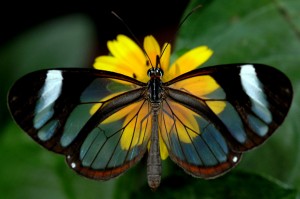Diversity makes us stronger. The diversity of life, biodiversity, is what unites and sustains us as living things on this tiny planet. And without it our tiny planet is in trouble.
Sadly, one other thing that unites all living things on this planet is the prevailing threat of climate change.

Climate change is already affecting global biodiversity and it will only get worse. At least one in six species is threatened by climate change. But for biodiversity, the greater issue is that climate change is not the only threat – there are plenty of other human impacts too. On their own, climate change and biodiversity loss can wreak havoc on our ecosystems, but put them together, and we living things have a much bigger problem on our hands.

One example of the dangerous relationship between climate change and biodiversity loss is phenology, or the timing of biological events, such as leaves bursting from buds or birds laying their eggs. It’s well know that climate change is affecting the phenology of a host of organisms from plants to bugs to birds to marine life. This is a problem because changing the timing of a trait in one organism can cause vitally coupled phenological events to get out of whack, for example the timing of the emergence of insect pollinators and the flowers that need to be pollinated.

But it turns out climate change is not the only factor that can affect phenology. A recent study in Proceedings of the National Academy of Sciences has shown that biodiversity loss can also cause a shift in phenological traits that rivals the effects caused by climate change. The scientists on the study wanted to know if flowers would bloom at different times depending on how many different plant species are growing together in one area. To investigate this, they grew plants in experimental plots in a grassland ecosystem near San Jose, CA. Some of the plots had many different species, or higher diversity, and some had fewer species, or lower diversity. Then, the scientists recorded the flowering times of the plants grown under these varying levels of diversity.
Quick lesson in ecology – diversity is not just about the number of species in an area, the proportion of each species matters too. So, the scientists based the abundance of each plant species in their experimental plots on the typical abundance of each species in the wild.

After crunching all the data, the scientists found that for the vast majority of species they studied, lowering plant diversity resulted in earlier flowering times. The response they observed was so significant that it is comparable to the impact that climate change has on phenology. And this finding may provide some evidence of the compounding negative effects of climate change and biodiversity loss. The authors of the study point out that global warming, although it clearly plays a strong part, has not alone been able to fully explain the extent of documented phenological changes. Therefore, the authors speculate that the impact of biodiversity on phenology could perhaps help us understand the magnitude of phenological shifts observed in previous climate change studies. And the more we understand, the greater chance we have to figure out ways to mitigate the effects of climate change.
If decreasing biodiversity can exacerbate the effects of climate change, can increasing biodiversity help diminish those effects? A recent study in Biological Reviews suggests that it can. Biodiversity increases the health and stability of ecosystems, as well the ecosystem’s ability to recover from damage, so, the authors argue, managing our forests to increase biodiversity could help stave off some of the negative effects of climate change.
Humans are a relatively new species; we can learn a lot from the diversity of life that’s been evolving for billions of years. One of the most important of those lessons is that diversity is good, it is necessary, and it should be celebrated and nurtured and protected. Celebrating and nurturing our own diversity as humans makes us better and stronger as a species – that is a fact. Protecting biodiversity will make us better and stronger as fellow living things on this tiny planet.

